Mechanical suckering machine
L'épamprage mécanique fonctionne par abrasion ou arrachage des sarments. Pour une efficacité optimale, il faut intervenir lorsque les pampres sont encore tendres (non lignifiées) et si possible d'une longueur inférieure à 20 cm.
Selon les cépages, deux interventions seront nécessaires dans la saison.
Selon les cépages, deux interventions seront nécessaires dans la saison.
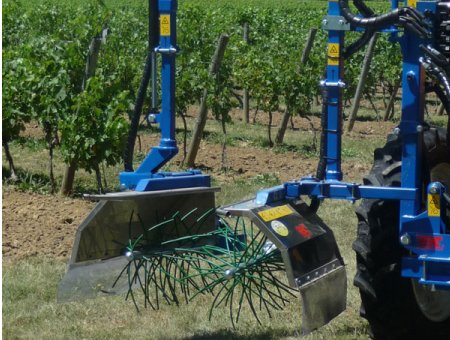
Components of the mechanical shoot remover
Wire guides
Their function is to keep the trellising wires in an area where they will not be caught by the rotating elements, for work carried out before the first lifting.
Guide and centring rails
For gantry-mounted machines, these parts facilitate entry into the row and position the modules on either side of the stump line.The vine guard / peg and vine passage roller
Some machines use this very simple device to define the spacing between the pruning modules or the distance of the rotation axis from the stock. This prevents the straps from wrapping around the stumps or posts.Hanging safety
As these machines are used close to the ground, stakes and stumps, they are equipped with devices to prevent breakage in the event of snagging: a joint with a jack or a return spring.Soil monitoring sensors
Soil monitoring sensors mean that the driver does not have to constantly adjust the height of the machine.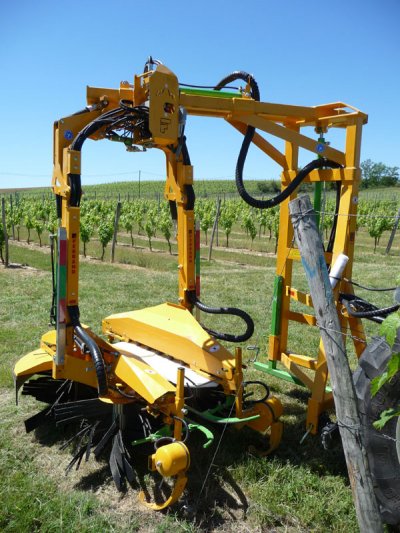
Ferrand heading machine with double head for strapping.
Note the guide rail and ground tracking sensors at the front.
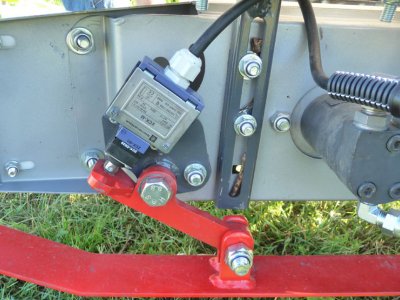
Ground tracking sensor (AVA)
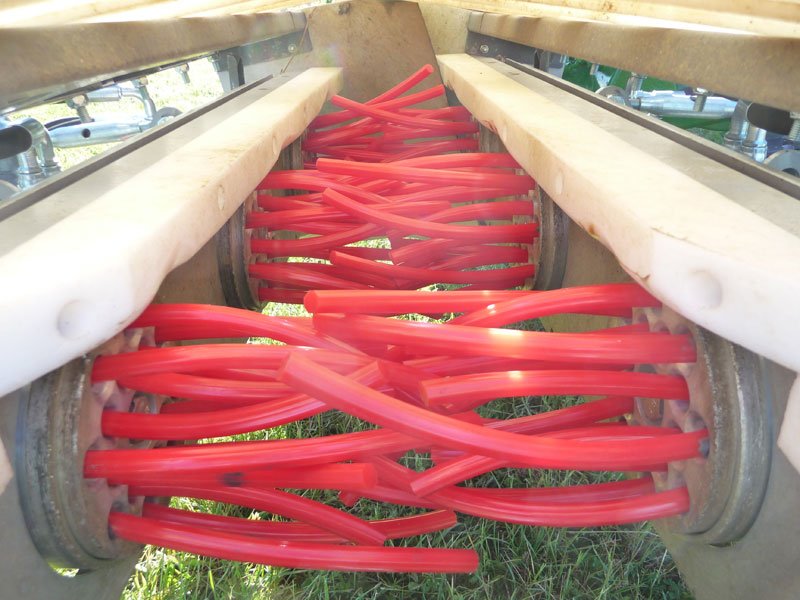
Opposed rubber brushes, AVA machine: rotation gives a more vertical inclination to the strands.
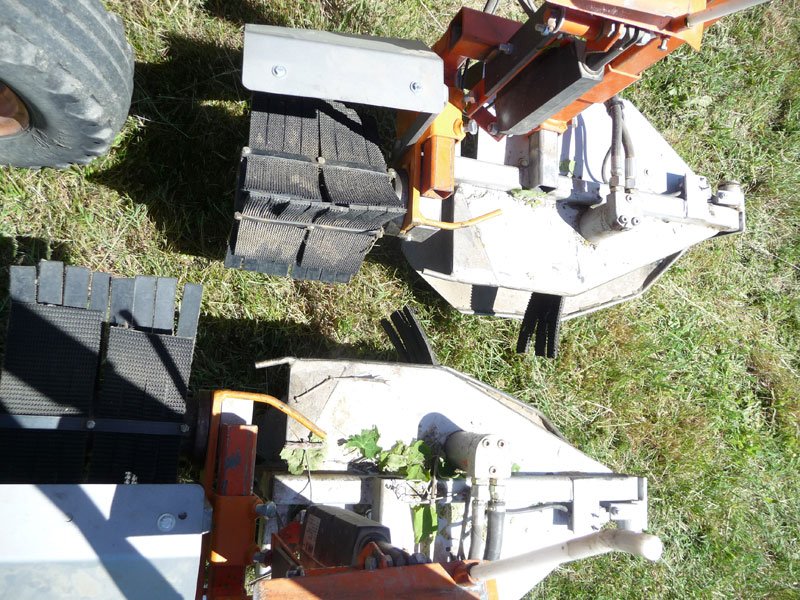
Top view of the Terral head trimmer, with horizontal strips at the front and vertical strips atthe back. The combination of two heads on two axes of rotation.
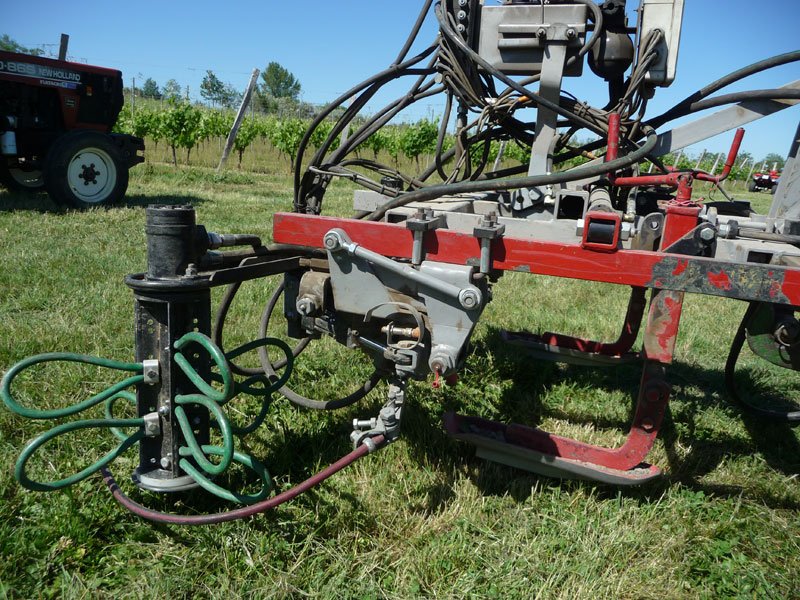
Loops on the Egretier header. A classic interceps device is used to pass the stumps.
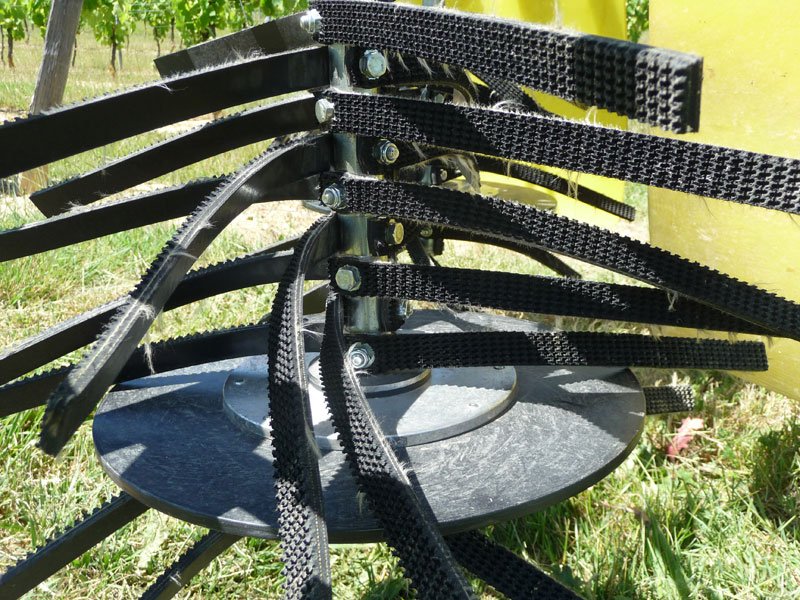
Grégoire strip-type head trimmer. Note the rubber discs at the base of the rotation axis, which act as a trap guard.
Protective plates
Useful for limiting the risks associated with projections caused by the speed of rotation of the brushes on the ground.NB: not all the components listed here are present on all machines!
Adjustment and use of mechanical headers
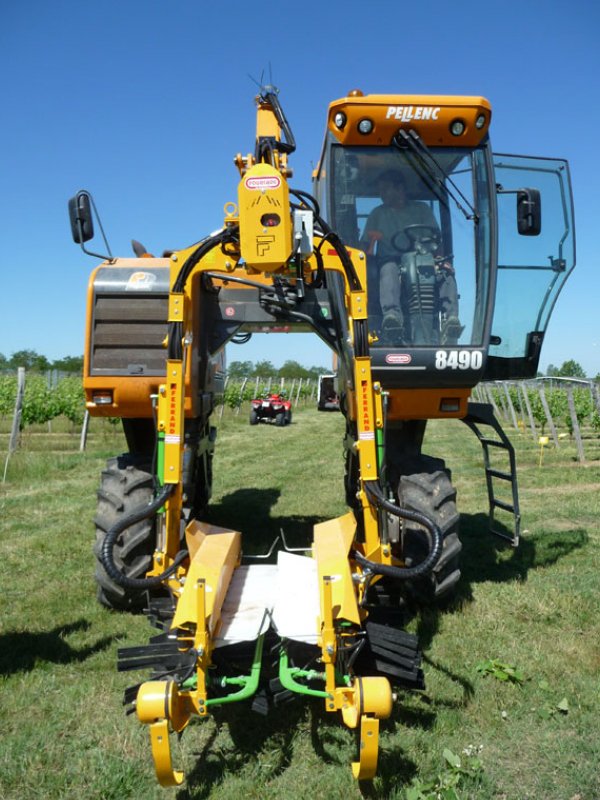
A mechanical de-budder is used at a fairly moderate working speed of around 2 to 3 km/h. However, some models can work faster, up to 4 km/h or more, thanks to the use of double or triple de-budding heads.
Adjustments are made to the working height and the correct positioning of the de-budding modules, which determine how the strips/wires/brushes cross the vine line.
Double-headed mechanical de-budder,
mounted on a multi-purpose carrier, with the aim of achieving a high work rate!
